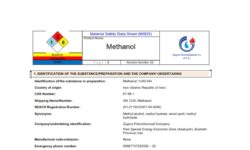Publ 54 ⏬⏬
Welcome to the world of tax documentation. In this brief introduction, we delve into the realm of Publ 54, a pertinent topic for those navigating the intricacies of reporting and disclosing tax information. Publ 54, also known as the Tax Guide for U.S. Citizens and Resident Aliens Abroad, holds paramount significance for individuals residing or working outside of the United States. Within its contents lie invaluable guidelines and instructions, enabling taxpayers abroad to understand their obligations, identify potential benefits, and ensure compliance with the Internal Revenue Service (IRS). Join us as we explore the key facets of Publ 54, shedding light on its purpose, scope, and significance for expatriates worldwide.
Publication 54: Tax Guide for U.S. Citizens and Resident Aliens Abroad
Publication 54, titled “Tax Guide for U.S. Citizens and Resident Aliens Abroad,” is a comprehensive resource provided by the Internal Revenue Service (IRS) in the United States. It contains essential information and guidance for U.S. citizens and resident aliens who live or work outside the country.
The primary purpose of Publication 54 is to assist individuals in understanding their tax obligations while abroad. It covers various topics related to international taxation, including:
- Filing requirements for U.S. citizens and resident aliens abroad
- Foreign earned income exclusion
- Foreign tax credits
- Tax treaties and how they impact taxation
- Reporting foreign financial accounts
- Self-employment tax considerations
- Social security and Medicare taxes for U.S. citizens working abroad
The guide provides detailed explanations, examples, and instructions to help individuals comply with U.S. tax laws while living overseas. It addresses common issues faced by expatriates, such as determining their tax home, qualifying for tax benefits, and understanding the tax implications of foreign investments or business activities.
Publication 54 aims to simplify the complexities of international taxation and ensure that U.S. citizens and resident aliens abroad are aware of their rights, responsibilities, and available tax benefits. It serves as a valuable resource for individuals seeking clarity on their tax obligations while living outside the United States.
Foreign Earned Income and Housing
In the realm of international taxation, foreign earned income and housing play significant roles. Foreign earned income refers to income earned by individuals who reside and work outside their home country. It includes salaries, wages, commissions, and self-employment earnings. The concept of foreign earned income is crucial for determining tax obligations, exemptions, and credits for individuals living abroad.
When it comes to housing, expatriates often encounter unique challenges. Some countries offer housing allowances or provide accommodation as part of employment packages, while others do not. For those who receive housing benefits, understanding the tax implications is essential.
Many countries have specific rules and regulations regarding the taxation of foreign earned income and housing. For instance, the United States has a system known as the Foreign Earned Income Exclusion (FEIE), which allows qualifying individuals to exclude a certain amount of their foreign earned income from US federal taxation. However, meeting specific criteria, such as passing either the bona fide residence test or the physical presence test, is necessary to take advantage of this exclusion.
It’s important for individuals with foreign earned income to consult with tax professionals or experts in international taxation to ensure compliance with relevant laws and maximize tax benefits. Understanding the intricacies of foreign earned income and housing can help expatriates make informed financial decisions and optimize their tax situations while living and working abroad.



